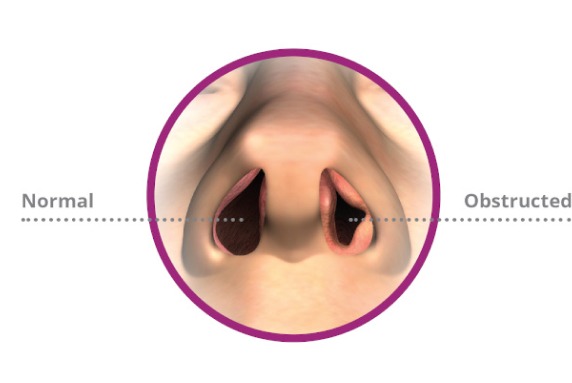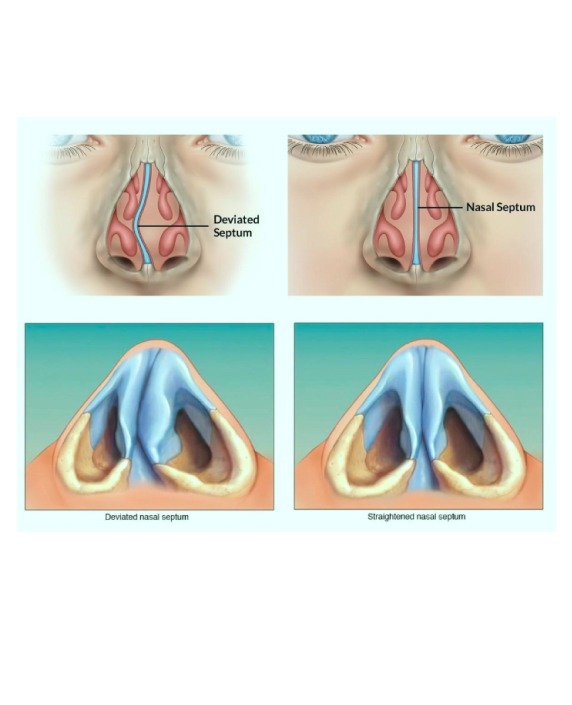Definition
A deviated nasal septum refers to an abnormal alignment or displacement of the thin wall (nasal septum) that separates the two nostrils. This condition can obstruct the nasal passages and lead to various symptoms.

Causes of Deviated Nasal Septum
A deviated nasal septum can result from several factors, including:
Congenital: Some individuals are born with a deviated septum due to genetic factors.
Trauma: Nasal injuries, such as accidents or sports injuries, can cause septal deviation.
Aging: The septum may naturally shift or deteriorate with age, leading to deviation.
Symptoms of Nasal Blockage
Nasal blockage is often accompanied by the following symptoms:
Nasal Congestion: One nostril may be more obstructed than the other, causing difficulty breathing.
Nosebleeds: Frequent nosebleeds due to irritation of the deviated septum.
Facial Pain: Discomfort or pain in the face, especially around the forehead or cheekbones.
Post-Nasal Drip: Can contribute, along with sinusitis, to excessive mucus production and drainage down the throat.
Snoring: Septal deviation can contribute to snoring and sleep disturbances.
Recurrent Sinus Infections: Obstruction can lead to increased susceptibility to sinus infections.
Headaches: Chronic headaches, especially if related to sinus congestion.

Treatment of Deviated Nasal Septum
The deviated nasal septum treatment aims to alleviate symptoms and improve nasal airflow. Options may include:
Medications: Decongestants, antihistamines, or nasal corticosteroid sprays can provide temporary relief from congestion and other symptoms.
Surgery: Septoplasty is a surgical procedure to straighten the nasal septum, improve airflow, and relieve symptoms.
Combination Surgery: In cases of severe septal deviation or when associated with other nasal issues (e.g., hypertrophied turbinates or nasal polyps), septoplasty may be combined with other surgeries.
Supportive Measures: Using humidifiers, saline nasal sprays, or nasal strips can help manage symptoms.
Management and Prevention
To manage and prevent symptoms related to a deviated nasal septum:
Hydration: Drink plenty of fluids to keep nasal secretions thin.
Nasal Hygiene: Maintain good nasal hygiene by avoiding excessive nose blowing and using saline nasal sprays.
Avoid Irritants: Minimize exposure to environmental irritants and allergens.
Regular Check-Ups: Consult with an ear, nose, and throat specialist for accurate diagnosis and appropriate management.
Summary
A deviated nasal septum is a condition in which the nasal septum, the wall that separates the nostrils, is misaligned or displaced. It can lead to symptoms like nasal congestion, nosebleeds, facial pain, and snoring. Treatment options include medications, surgical procedures like septoplasty, and supportive measures to alleviate symptoms and improve nasal airflow. If you experience persistent symptoms related to a deviated nasal septum, consult with a healthcare provider or specialist for evaluation and treatment.


